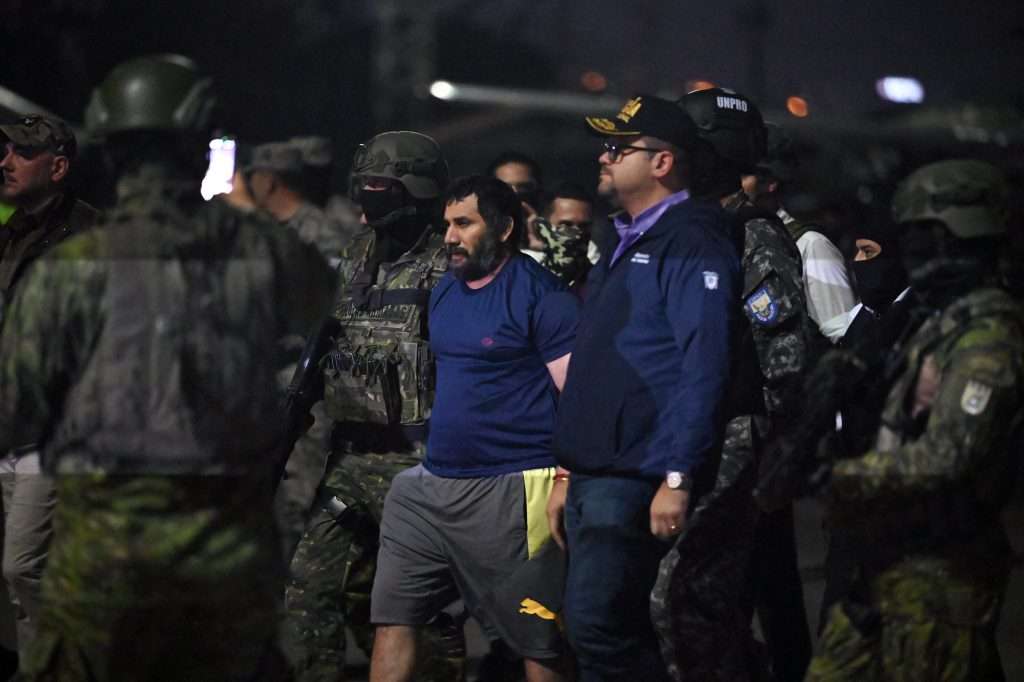Notorious Ecuador drug trafficker extradited to US

Adolfo Macías, known by his alias “Fito,” and considered Ecuador’s most powerful drug trafficker, has been extradited to the United States and is expected to appear before a federal court in New York, according to France 24 via AFP on July 21st.
Drug trafficking charges against Macias were filed by the US Attorney’s Office in April, accusing him of conspiring to traffic cocaine, committing multiple firearms offences and engaging in weapons smuggling. He is scheduled to be arraigned on a superseding indictment.
Reportedly the head of the infamous “Los Choneros” gang, Maciás was extracted from a maximum-security prison in southwestern Ecuador on July 20th as part of the formal extradition process, confirmed by Ecuador’s prison authority SNAI.
Once a taxi driver, Macías is the first Ecuadorian national to be extradited to the U.S. since President Daniel Noboa secured new powers to combat organised crime following a nationwide referendum.
His transfer marks a pivotal moment in Ecuador’s intensifying battle against drug violence. Over the past several years, the country has experienced a sharp escalation in gang warfare, driven by factions including Mexico’s Sinaloa cartel, Colombia’s Gulf Clan, and various Balkan criminal organisations.
In early 2024, Macías escaped from prison, sparking national chaos. In hopes of regaining control, President Noboa declared a state of “internal armed conflict” and deployed military forces. The aggressive security response drew sharp criticism from human rights groups.
Following his escape, Ecuador launched an extensive manhunt, offering a $1 million reward for information leading to his arrest. He was eventually found on June 25th, hiding in a concealed bunker beneath the tiled floor of a luxury home in Manta.
Following the recapture, President Noboa stated his intention to expedite the extradition process: “We will gladly send him and let him answer to the North American law.”
Ecuador, now a key transit point for global drug flows, sees more than 70% of the world’s cocaine pass through its ports, according to government data. As cocaine consumption continues to increase worldwide, authorities are likely to face growing scrutiny over their ability to combat trafficking and rein in powerful criminal networks.
France 24 via AFP, Maghrebi.org
Want to chase the pulse of North Africa?
Subscribe to receive our FREE weekly PDF magazine












